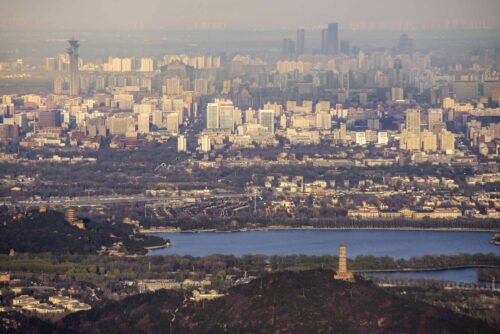Xi emphasizes ‘ethnic unity,’ environmental protection, rural development, and military readiness at Two Sessions
Chinese state media have highlighted four meetings led by Xi Jinping in the past week, with delegations from Inner Mongolia and Qinghai Province, representatives from the health and education fields, and security and military personnel.

During the annual Two Sessions political gathering in Beijing, there are many ways to read the signals of Chinese government priorities for the next year.
- The most obvious is to read the official policy reports and documents, especially the government “work report” and, this year, the new Five-Year Plan. The China Project has already reported on some key political and economic takeaways from those sources.
- Another way to tell what types of policies might be announced in the future is to read through the most popular “suggestions” from delegates of the Chinese People’s Political Consultative Conference.
Following the movements and words of Xí Jìnpíng 习近平 is a third way, which has perhaps never been more important than this year, as the General Secretary appears to continue to consolidate his power in the Chinese Communist Party.
Here is a quick rundown of groups Xi is reported, in state media, to have met with since the Two Sessions began last week, and the key messages he is personally emphasizing:
- In Xi’s first meeting on March 5, with a delegation from Inner Mongolia — where protests broke out last year when authorities further watered down Mongolian-language education in the region — the Chinese leader unsurprisingly emphasized “ethnic unity” (Chinese, English).
- However, Xi also highlighted environmental protection in this first meeting. He talked about making Inner Mongolia into an “ecological security barrier in northern China,” and per an English-language Xinhua report, Xi added desertification, an ecological challenge that is particularly pressing in Inner Mongolia, to a list of priorities for what he calls a “holistic approach” to conservation.
- On March 6, Xi held a discussion with representatives from the health and education sectors (English, Chinese). Commenting on China’s experience with COVID-19, he called for China to “reform and improve” the disease prevention and control system, without specifying details. On education, he called for more training for teachers, particularly those in rural and less-developed areas.
- On March 7, Xi met with a delegation from Qinghai, one of China’s least-developed provinces (detailed reports only in Chinese). The top issue highlighted was poverty alleviation, now framed primarily through the new buzzword of “rural revitalization” (乡村振兴 xiāngcūn zhènxīng), though environmental protection also featured prominently in this meeting.
- Finally, Xi met with military and security personnel on March 9 (Chinese, English), emphasizing innovation in defense-related science and technology and combat readiness for the military. “The current security situation of our country is largely unstable and uncertain,” Xi said.






